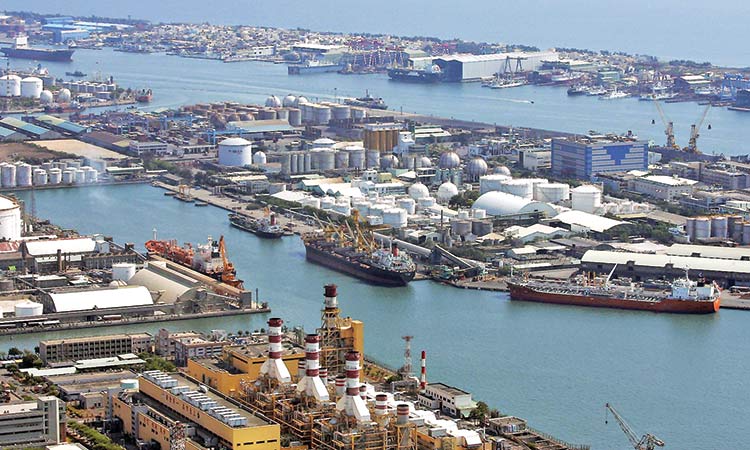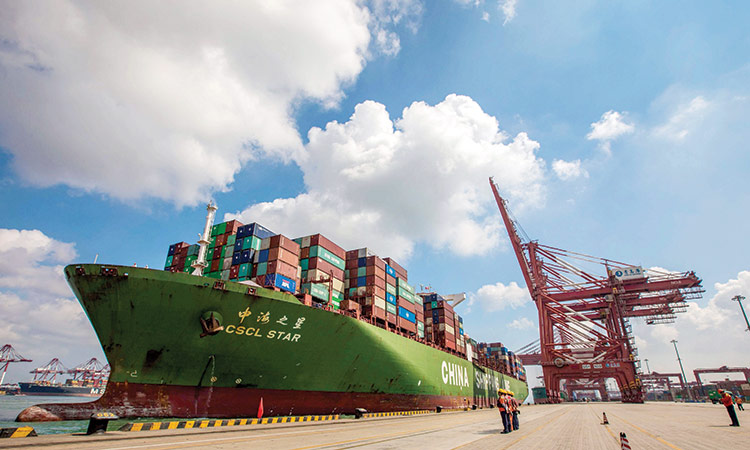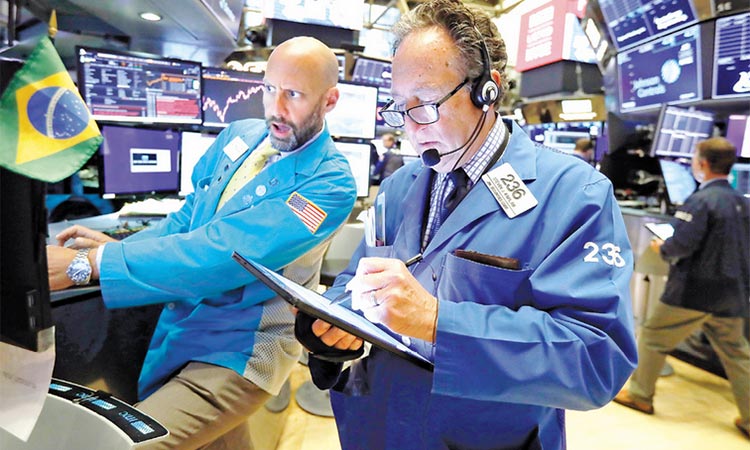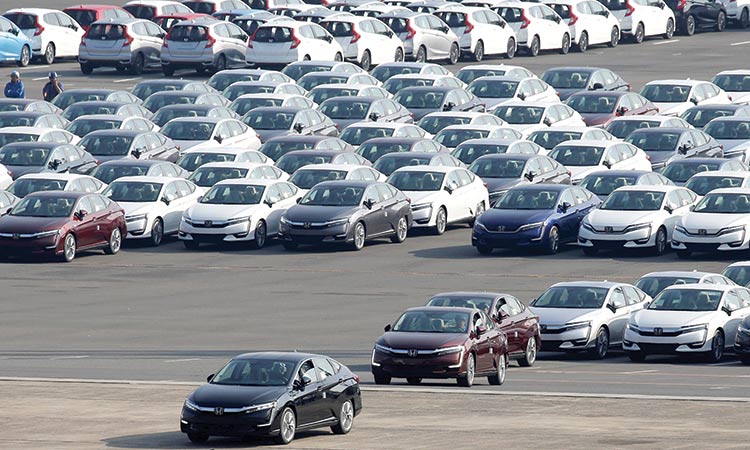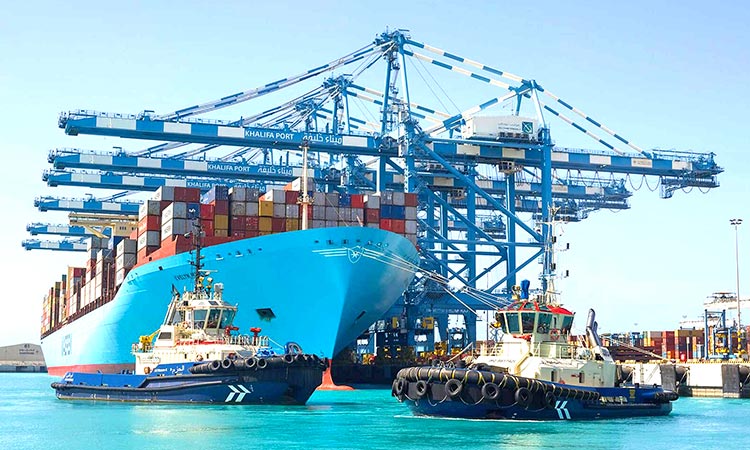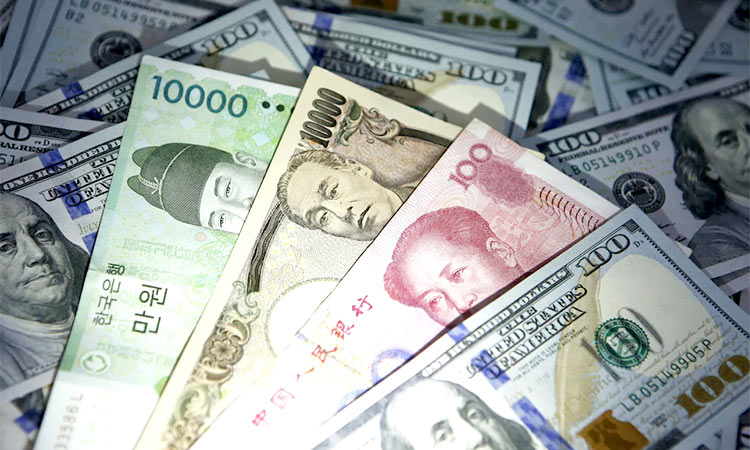South Korea may exports fall for sixth month, worse than expected
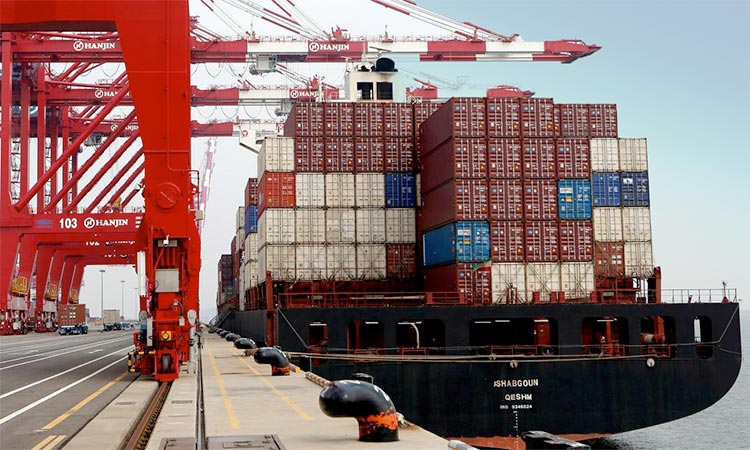
Cranes at the Hanjin Shipping container terminal at Incheon New Port in Incheon, South Korea. Reuters
Overseas sales dropped 9.4 per cent in May from a year earlier, trade ministry data showed, worse than a median 5.6 per cent loss tipped in a Reuters poll. Imports edged down 1.9 per cent in May against a 0.4 per cent rise seen in the poll.
The bleak May trade data from South Korea, the world’s sixth-largest exporter, was the latest evidence of cooling global economy amid the prolonged trade friction between the United States and China.
“If there’s no concrete deal during the G20 summit period in late June, there will be additional tariff raises kicking in and it will give an additional huge impact globally,” said Park Sang-hyun, chief economist at Hi Investment & Securities.
The data came just hours after US President Donald Trump’s unexpected threat of tariffs on Mexican goods fed fears of recession in the major economies and sent global equity markets tumbling to their lowest in months.
South Korea’s trade ministry said the poor May exports were led by a 30.5 per cent drop in memory chip sales, while exports to China fell 20.1 per cent for their worst performance in more than three years with the giant neighbouring market.
The sluggish May exports, following a loss of 2.0 per cent in April, dash the South Korean government’s hopes that overseas shipments will begin recovering soon and pile pressure on the central bank to cut interest rates.
In April, the Bank of Korea trimmed its forecast for economic growth this year to 2.5 per cent from the previous 2.6 per cent, but economists now expect the central bank to deliver another downgrade when it reviews the projection in July.
On Friday, its monetary policy committee held the policy interest rate steady at 1.75 per cent, but a split vote in the decision gave a firm signal the central bank was shifting to a dovish stance to help support the economy.
South Korea’s exports contracted less in April than in the previous month, but the fifth straight of month of shrinkage, with memory chip shipments down 13.5 per cent, could hurt chances of the trade-reliant economy returning to growth this quarter.
April exports fell 2.0 per cent from a year earlier, government data showed on Wednesday. That was less than the 5 per cent decline forecast in a Reuters poll and March’s 8.2 per cent drop.
Policymakers worry that the trade dispute between Washington and Beijing could cause collateral damage for South Korea, especially as Asia’s fourth largest economy suffered an unexpected contraction in the first quarter on slumping exports and investment. Gross domestic product (GDP) in the first quarter declined a seasonally adjusted 0.3 per cent from October-December, the worst contraction since a 3.3 per cent drop in late 2008.
The trade ministry said slowing Chinese growth and weaker global demand for Korea’s memory chips resulted in further declines in exports in April.
It also said April exports would have expanded 0.8 per cent from a year earlier if not for the 13.5 per cent drop in memory chips.
“The huge price drop in memory chips, adjustment of inventories at global IT companies, as well as stalled consumer demand for new smartphones in China” have slowed semiconductor exports in April, the ministry said.
Shipments to China, South Korea’s biggest trading partner, fell 4.5 per cent, making a sixth consecutive monthly fall.
However, US-bound exports rose for a seventh consecutive month, helped by a boost in demand for Korean cars and mobile phones.
“Exports are likely to recover in the coming months as demand from China recovers. The chip sector will also likely see a rebound in demand,” said Chun Kyu-yeon, an economist at Hana Financial Investment.
Imports increased 2.4 per cent from a year earlier, compared with the poll prediction of 0.3 per cent. This led to a preliminary trade surplus of $4.12 billion, down from $5.2 billion in March.
The economy of South Korea is the 4th largest in Asia and the 11th largest in the world. It is a mixed economy dominated by family-owned conglomerates called chaebols; however, the dominance of the chaebol is unlikely to last and engenders risk of slowing down the transformation of Korean economy for the benefit of future generations.
South Korea is known for its spectacular rise from one of the poorest countries in the world to a developed, high-income country in just a few generations.
Reuters
